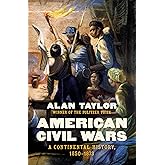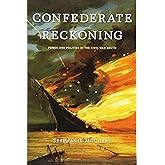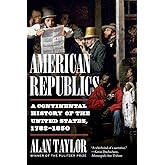Buy new:
$55.00$55.00
FREE delivery April 21 - 24
Ships from: MyPrepbooks Sold by: MyPrepbooks
Save with Used - Acceptable
$2.41$2.41
$3.98 delivery Wednesday, April 23
Ships from: glenthebookseller Sold by: glenthebookseller

Download the free Kindle app and start reading Kindle books instantly on your smartphone, tablet, or computer - no Kindle device required.
Read instantly on your browser with Kindle for Web.
Using your mobile phone camera - scan the code below and download the Kindle app.

Follow the authors
OK
New Men, New Cities, New South: Atlanta, Nashville, Charleston, Mobile, 1860-1910 (Fred W. Morrison Series in Southern Studies) Paperback – February 1, 1990
Purchase options and add-ons
Additional Details


Doyle uses four cities as case studies to represent the diversity of the region and to illuminate the responses businessmen made to the challenges and opportunities of the postbellum South. Two interior railroad centers, Atlanta and Nashville, displayed the most vibrant commercial and industrial energy of the region, and both cities fostered a dynamic class of entrepreneurs. These business leaders' collective efforts to develop their cities and to establish formal associations that served their common interests forged them into a coherent and durable urban upper class by the late nineteenth century. The rising business class also helped establish a new pattern of race relations shaped by a commitment to economic progress through the development of the South's human resources, including the black labor force. But the "new men" of the cities then used legal segregation to control competition between the races.
Charleston and Mobile, old seaports that had served the antebellum plantation economy with great success, stagnated when their status as trade centers declined after the war. Although individual entrepreneurs thrived in both cities, their efforts at community enterprise were unsuccessful, and in many instances they remained outside the social elite. As a result, conservative ways became more firmly entrenched, including a system of race relations based on the antebellum combination of paternalism and neglect rather than segregation. Talent, energy, and investment capital tended to drain away to more vital cities.
In many respects, as Doyle shows, the business class of the New South failed in its quest for economic development and social reform. Nevertheless, its legacy of railroads, factories, urban growth, and changes in the character of race relations shaped the world most southerners live in today.
- Print length391 pages
- LanguageEnglish
- PublisherUniv of North Carolina Pr
- Publication dateFebruary 1, 1990
- Dimensions6.25 x 1.25 x 9.5 inches
- ISBN-100807842702
- ISBN-13978-0807842706
- Lexile measure1470L
Book recommendations, author interviews, editors' picks, and more. Read it now.
Frequently purchased items with fast delivery
Editorial Reviews
Review
"Alabama Review"
A fine book filled with astute insights, shrewd judgments, and interesting vignettes. It is soundly researched, and the arguments are convincingly developed.
"Labor History"
This is a well-written, extensively researched book that will be a significant contribution to our understanding of the postwar South.
"David R. Goldfield, University of North Carolina at Charlotte
"A fine book filled with astute insights, shrewd judgments, and interesting vignettes. It is soundly researched, and the arguments are convincingly developed.
"Labor History""
"This is a well-written, extensively researched book that will be a significant contribution to our understanding of the postwar South.
"David R. Goldfield, University of North Carolina at Charlotte"
About the Author
Product details
- Publisher : Univ of North Carolina Pr; 1st edition (February 1, 1990)
- Language : English
- Paperback : 391 pages
- ISBN-10 : 0807842702
- ISBN-13 : 978-0807842706
- Lexile measure : 1470L
- Item Weight : 1.45 pounds
- Dimensions : 6.25 x 1.25 x 9.5 inches
- Best Sellers Rank: #3,295,184 in Books (See Top 100 in Books)
- #4,032 in Sociology of Urban Areas
- #64,182 in U.S. State & Local History
- Customer Reviews:
About the authors

Discover more of the author’s books, see similar authors, read book recommendations and more.

Don H. Doyle, is McCausland Professor of History emeritus at the University of South Carolina. He grew up near Berkley, California, graduated from the University of California, Davis, and earned his PhD in history at Northwestern University. He was a Fulbright professor in Rome, Genoa, and Rio de Janeiro and taught at Leeds University in England. He is retired from teaching and lives in Folly Beach, South Carolina.
"My fascination with the past began one summer in California when my mother brought home a shoebox full of letters from my great-great grandfather, a drummer boy from Vermont who served in the Civil War and wrote home to his parents. Without quite realizing it, I became a historian that summer."
His new book, The Age of Reconstruction: How Lincoln's New Birth of Freedom Remade the World (Princeton, 2024) breaks out of the usual focus on American events to examine the Reconstruction era within a larger international context. This book is a sequel to his acclaimed The Cause of All Nations: An International History of the American Civil War (Basic, 2015), which offered a bold new interpretation of what America's Civil War meant to the wider world.
Customer reviews
- 5 star4 star3 star2 star1 star5 star100%0%0%0%0%100%
- 5 star4 star3 star2 star1 star4 star100%0%0%0%0%0%
- 5 star4 star3 star2 star1 star3 star100%0%0%0%0%0%
- 5 star4 star3 star2 star1 star2 star100%0%0%0%0%0%
- 5 star4 star3 star2 star1 star1 star100%0%0%0%0%0%
Customer Reviews, including Product Star Ratings help customers to learn more about the product and decide whether it is the right product for them.
To calculate the overall star rating and percentage breakdown by star, we don’t use a simple average. Instead, our system considers things like how recent a review is and if the reviewer bought the item on Amazon. It also analyzed reviews to verify trustworthiness.
Learn more how customers reviews work on AmazonTop reviews from the United States
There was a problem filtering reviews. Please reload the page.
- Reviewed in the United States on April 17, 2003Doyle traces the transition years between Old South and New South in Atlanta, Nashville, Charleston and Mobile between 1860 and 1910. Wonderful compilation of both quantitative and qualitative sources; the sources from newspapers during the time act like time capsules into the period. The newspaper sources combined with some photographs and maps make Doyle's book a well-researched place for students of Southern history and culture to enjoy an insightful glimpse into particular loci in the south. Chapters include:
Preface
Acknowledgments
Urbanization of Dixie
The New Order of Things
Ebb Tide
Patrician and Parvenu
The Atlanta Spirit
The Charleston Style
New Class
Gentility and Mirth
The New Paternalism
Paternalism and Pessimism
Epilogue
Notes
Index
Students interested in the too-often forgetten urban south should get this book












